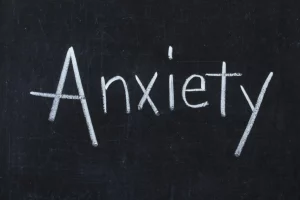Anxiety
Anxiety VA Disability Claim Attorney in South Portland, Maine
A veteran who suffers from panic attacks may be eligible for disability payments from the Department of Veterans Affairs (VA). Anxiety disorders are challenging to diagnose, and symptoms may not appear until after a veteran has left active duty.
The attorneys at Jackson & MacNichol can provide crucial assistance in preparing an initial claim for disability benefits. If the VA has already dismissed your anxiety claim, contact our experienced anxiety VA disability claim attorney for help in appealing the denial.
Why Do You Need an Anxiety VA Disability Claim Attorney in Maine?
It should be a simple process to apply for veteran’s disability compensation. While some veterans find the procedure simple, this is not the case for everyone. Some veterans have trouble qualifying for the benefits they are entitled to.
Many veterans find that engaging an anxiety VA disability claim attorney offers them the legal counsel, assistance, and direction they require while navigating the VA disability process. When you engage us, we will be able to:
- Explain the many forms of disability compensation available to veterans.
- Examine your case to see if you qualify for VA disability compensation and explain it’s application process.
- Assist with the completion and submission of the application.
- Gather medical evidence to back up your disability claim.
What is Anxiety?

- Feeling restless, jumpy, or on edge
- Excessive worrying
- Difficulty concentrating
- Rapid heartbeat
- Trembling or twitching
- Muscle tension
- Shortness of breath or difficulty breathing
- Feeling dizzy, nauseous, or lightheaded
- Difficulty sleeping
Anxiety disorders include generalized anxiety disorder, panic disorder, and other phobia-related disorders. If veterans with anxiety problems show that their military service causes their anxiety, they may be eligible for VA disability compensation.
What Are the Different Types of Anxiety?
Below are the four common types of anxiety.
Social Anxiety
People with Social Anxiety Disorders, or SAD, may avoid social situations such as parties, gatherings, classes, dating, and other activities because their anxiety about the situations is intense and persistent.
Generalized Anxiety
Suppose you’re always worried about anything in your life and can’t seem to stop. In that case, it could be harming your quality of life and making you feel uneasy, agitated, restless, irritated, or unable to concentrate.
If this describes you, you may have GAD or Generalized Anxiety Disorder. If you have GAD, you may be constantly concerned about your health, employment, income, relationships, or other aspects of your life.
Panic Attacks
Panic attacks can manifest as a repeating bout of terror accompanied by symptoms such as racing heart, chest pain, difficulty breathing, dizziness, and more. You could mistakenly believe you’re suffering a heart attack. You might have Panic Disorder if you get panic episodes regularly.
If you have Panic Disorder, you may strive to avoid circumstances where you are likely to have a panic attack. This may be a conference, a concert, a crowded park, a store, a small or confined area, or somewhere else you think will cause you to fear.
Phobias
Small spaces, driving, blood or needles, heights, and other phobias are examples of specific things you might be frightened of. If you’ve served in the military, you can have phobias about explosions or loud noises, making you avoid settings where you might hear them.
If your phobias prevent you from living your life to the fullest, you may need help.
What Are the Treatment Options for Anxiety?
Take a deep breath if you’ve been diagnosed with an anxiety disorder. There are therapeutic choices available to you. You don’t have to suffer in silence any longer. Anxiety treatment can be divided into two categories:
Cognitive Behavioral Therapy (CBT)
This is the form of therapy that is most commonly discussed. It entails meeting with a skilled therapist on a short-term basis to determine what type of anxiety you are experiencing, what may be causing it, and how to manage your anxious thoughts and sensations to function better in everyday life.
Medication
You may be prescribed anti-anxiety medication if you have completed Cognitive Behavioral Therapy or if your doctor believes it is the best course of treatment for you. You might be prescribed an as-needed anti-anxiety drug, or you might be prescribed a daily anti-anxiety prescription.
The type of medication prescribed to you is determined by your diagnosis and any relevant variables (like if you also have depression).
What is the Service Connection for Anxiety Disorders?
Veterans must establish the following to establish a direct service link for an anxiety disorder:
- A current diagnosis of an anxiety disorder
- An in-service occurrence that caused or aggravated the anxiety disorder
- A medical nexus connecting the current, diagnosed anxiety disorder to the in-service occurrence
If a veteran receives particular treatment for their anxiety while in service, or if they mark out that they are suffering anxiety-like symptoms at the time of their release examination, these are examples of in-service occurrences. It’s worth noting that the in-service occurrence component of service connection doesn’t require the veteran to have received an official diagnosis of anxiety disorder while serving.
Instead, suppose a veteran is diagnosed with an anxiety illness after service. In that case, they can still get benefits if they can prove their current condition is related to their service. To establish this link, a medical opinion is nearly always required.
What is the Secondary Service Connection for Anxiety?
An alternative way to get a service connection for anxiety is a secondary service connection. In this scenario, a secondary service connection may be appropriate if the veteran already has a service-connected condition causing or increasing their anxiety.
A veteran, for example, may suffer from a service-connected knee disease that causes substantial discomfort and limits their ability to perform daily activities and chores. As a result, the veteran may grow concerned about their capacity to function and lead an everyday life.
In this case, the veteran may be eligible for secondary service connection for anxiety caused by their service-connected knee disease. Importantly, veterans must still prove a link demonstrating that their anxiety was caused or aggravated by an existing service-connected ailment.
What If Veterans Were Diagnosed with Anxiety Before Service?
Even if a veteran was diagnosed with an anxiety disorder before joining the service, they might be eligible for VA disability payments. In this scenario, the veteran would have to show that their military service intensified or worsened the preexisting anxiety problem beyond its natural evolution.
This procedure is comparable to establishing a direct service connection. The difference is that the worsening of a preexisting ailment is classified as a service connection based on aggravation by VA.
What Are the Compensation & Pension (C&P) Exams for Anxiety?
Compensation and Pension (C&P) examinations are commonly done to see if there is a link between a veteran’s current, diagnosed condition and their service period. Typically, veterans will visit with a VA doctor to discuss their medical history, time in the military, and current situation.
The VA examiner will also ask about the veteran’s present symptomatology to establish the severity of their anxiety illness. Veterans must always show up for their C&P exams or tell VA as soon as possible if they cannot do so. Failure to appear for a C&P exam will almost certainly result in the VA denying benefits.
Veterans should always seek a copy of the results after taking a C&P exam. Veterans are entitled to a copy of their exam, but VA will only issue one of the veteran requests explicitly.
When veterans receive their C&P exam, they should adequately review it to see if there are any issues or contradictions. If that’s the case, they should contact VA to point them out, which they can do by submitting more facts or arguments.
What is the Evidence That Can Strengthen Anxiety Claims?
For anxiety disorder claims, VA C&P exams are one piece of proof; however, there are various additional types of evidence that veterans can submit. Lay testimony, such as testimonies from veterans, their families, and friends, can be pretty helpful.
Because of the stigma associated with mental health issues, many veterans do not seek treatment for their anxiety disorders immediately. By discussing the start and evolution of the anxiety illness, lay comments can help fill in the gaps. Veterans can also submit non-VA doctors’ or psychologists’ private treatment records.
How Does VA Rate Anxiety Disorders?
VA employs the General Rating Formula for Mental Disorders to give one of the following percentages to service-connected anxiety disorders: 0, 10, 30, 50, 70, or 100. These evaluations are based on a veteran’s level of social and occupational impairment and the severity of the symptoms used by the VA to describe that impairment.
Importantly, all of the anxiety disorders listed below have a diagnostic code (DC) and are rated using this formula:
- DC 9400: Generalized Anxiety Disorder
- DC 9403: All phobias, including social anxiety disorder
- DC 9404: Obsessive-Compulsive Disorder
- DC 9410: Other specified anxiety disorder
- DC 9411: Post-Traumatic Stress Disorder
- DC 9412: Panic Disorder or Agoraphobia
In addition, if a mental disorder’s diagnosis is modified, the rating agency will decide whether the new diagnosis is a progression of the previous diagnosis, a correction of a past diagnosis error, or the emergence of a new and distinct condition.
What Are the VA Rating Percentages for Anxiety?
For all mental disorders, the VA Disability Ratings employ the same criteria. The following is a list of them.
Zero Percent Rating
You’ve been diagnosed with a mental illness, but the symptoms don’t interfere with your career or social life, and you don’t need to take medicine regularly.
10 Percent Rating
During considerable stress, you have specific subtle symptoms that reduce your work efficiency and impede your social functioning. Continuous treatment keeps your symptoms under control.
30 Percent Rating
You have a depressed mood, anxiety, panic attacks (monthly or less frequently), or sleep problems, and you have periods of inability to accomplish work responsibilities on occasion. In general, you get along fine with typical behavior and self-care.
50 Percent Rating
You suffer panic episodes more than once a week, are unable to comprehend complex commands, are unable to retain short- or long-term memories, have impaired judgment and thinking, and are unable to establish relationships.
70 Percent Rating
You have near-constant panic or depression that affects your ability to function independently, reduced impulse control, spatial disorientation, and trouble adapting to stressful situations. Suicidal thoughts, obsessive rituals that interfere with daily activities, and a collapse of job, family, and social connections are all possible outcomes of these symptoms.
100 Percent Rating
In both business and social situations, you are completely disabled. Persistent delusions or hallucinations, inappropriate conduct, inability to complete daily duties, disorientation to time or place, and memory loss are some of the symptoms you may experience. Finally, you run the risk of harming yourself or others.
When to Hire a VA Disability Attorney?
You should probably only engage an attorney if required. If your disability claim is refused improperly, you should seek legal counsel immediately. This is one situation where employing an attorney is unquestionably the best option.
Nobody should ever make you feel ashamed or embarrassed for striving for a better life. You are helping to establish a better world for all veterans by fighting for personal justice. Some veterans attempt to represent themselves in court after being denied a disability claim, but this is often a wrong decision for several reasons. To begin with, most veterans are unaware of the complexities of disability law.
On the other hand, VA-accredited attorneys are conversant with the hundreds of rules and regulations that govern disability claims. Furthermore, these lawyers closely follow each new federal court decision involving veterans’ rights. Without this understanding, the prospects of successfully reversing a refusal are slim. The law changes as federal judges weigh in since our legal system is founded on precedents.
The decision of your disability claim may have a significant impact on the trajectory of your life in the future. You could be doomed to a life of financial misery and uncertainty if your claim is denied unfairly. You have every right to a disability pension if you have sacrificed your health in the service of our country.
How Can Our Disability Attorney Increase Your Odds of Winning Your Appeal?
The Department of Veterans Affairs (VA) is one of the most well-funded and well-known government agencies in the United States. Unfortunately, the department’s scale can occasionally work against veterans’ interests.
This vast bureaucracy is prone to making blunders. Even if you meet all of the VA’s requirements and deadlines, getting your disability compensation can be long and challenging.
Don’t give up if you’ve been turned down. With the help of our experienced anxiety VA disability claim attorney, you can still win your disability benefits on appeal.
Hiring our skilled anxiety VA disability claim attorney will help you minimize your stress levels and enhance your chances of overall success. Dealing with bureaucracy and the legal system on your own can feel like a never-ending battle. With our anxiety VA disability claim attorney on your side, you’ll likely feel like a huge weight has been lifted.
Putting Together an Appeal Can Be a Complex Process
There are three elements to a successful VA disability claim:
- You must have a current medical diagnosis indicating that you are disabled. Your impairment could be physical or psychological.
- While serving in the military, you were diagnosed with a disease, sustained an injury, or witnessed a traumatic event.
- There’s a link between the first and second elements here (a medical nexus).
The court will dismiss your claim if you miss one of these three elements. It can be difficult for a layperson to put together a successful plea. You must handle paperwork, information requests, and medical appointments to win an appeal. You may find it challenging to manage this complicated process due to your disability.
If you represent yourself in court, you risk missing deadlines or failing to meet the court’s standards. Our anxiety VA disability claim attorney is well-versed in these legal procedures, which can appear complicated to the untrained eye.
If the VA has denied you compensation for a service-connected disability, a Maine disability lawyer from Jackson & MacNichol may be able to help.
Our anxiety VA disability claim attorney is dedicated to assisting veterans in obtaining the benefits they are entitled to. The Jackson & MacNichol team can examine a veteran’s military records and medical history to determine the evidence required to create a successful appeal. Call us right now for a free case evaluation.



